

Race in Survivor: Part 1
Survivor
Multi-season analysis
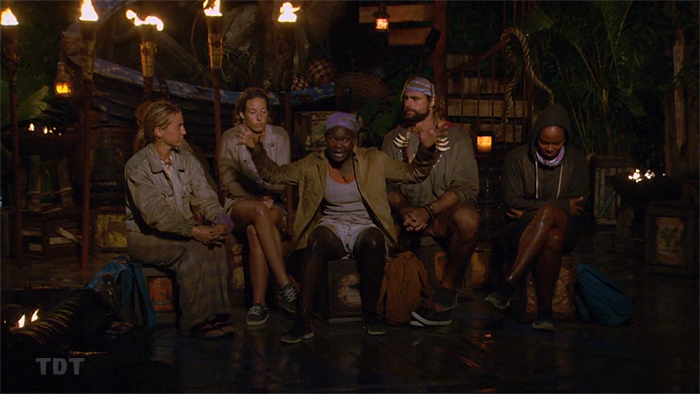
In each of the last two seasons, the subject of Race came up in a prominent way. In Survivor 41, Black players Deshawn, Shantel, Danny, and Liana formed an alliance, and openly discussed the importance of representing their race in a positive way. Then in Survivor 42, Black players Maryanne and Drea entered a post-merge Tribal Council, saw Black players Chanelle and Rocksroy sitting on the jury, and promptly announced they couldn’t be responsible for putting a third consecutive Black player on the Jury.
Part of the reason the season 41 and 42 players felt so strongly is because of developments that happened in the COVID-extended offseason between Winners At War and 41. A group of Black Survivor players from several previous seasons organized a meeting with CBS and Survivor executives and presented them with a petition calling for better representation for minority contestants – in casting, in editing decisions and in behind the camera capacities. This group included Sean Rector & Vecepia Towery-Robinson (Marquesas), Jolanda Jones (Palau), Julia Carter (Edge Of Extinction), Sherea Lloyd (China), Ted Rogers (Thailand), Sabrina Thompson (One World), Rory Freeman (Vanuatu) and J’Tia Hart (Cagayan).
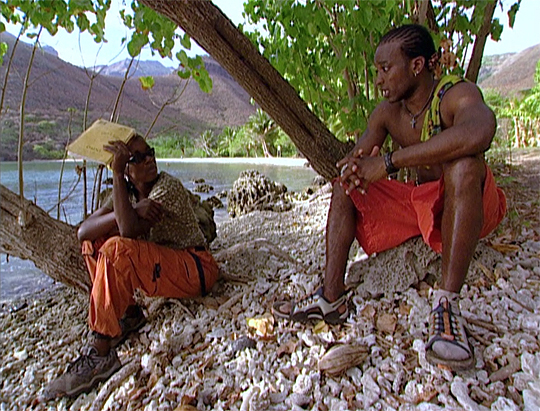

The result was an agreement from producers that each subsequent Survivor season would be made up of at least 50% minority contestants. Producers kept their word, as both the season 41 and 42 casts had at least 50% minority representation. And lo and behold, both seasons saw minority women (Erika and Maryanne) winning the game. In fact, Survivor 42 became the only season with multiple Black cast members that saw every one of them make it to the merge.
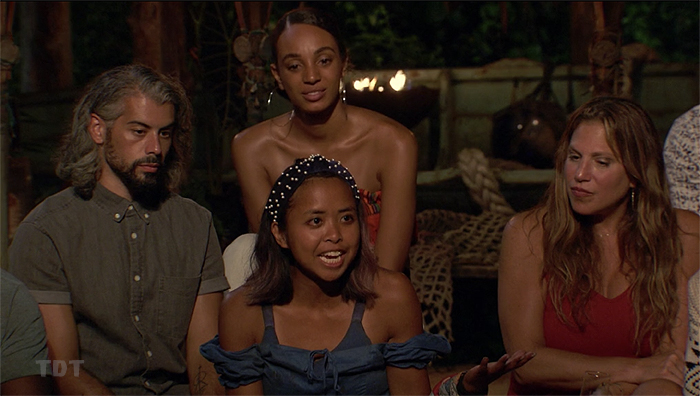
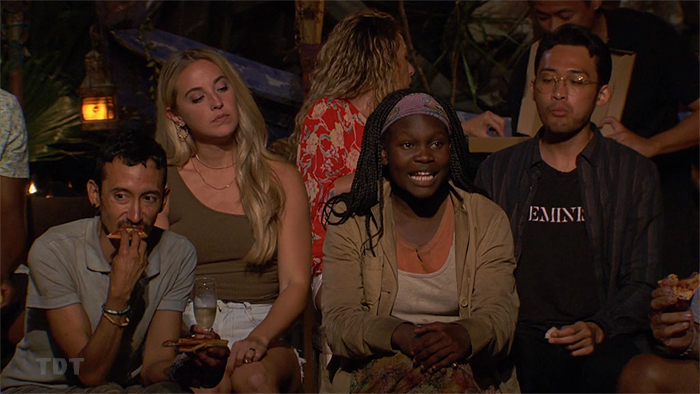
Another significant event was the George Floyd murder trial. The Survivor 41 players got on a plane for Fiji five days before the trial began. The season 42 cast might have been aware of the verdict, depending on how long they had to sit in COVID quarantine in Fiji. The verdict was announced on April 20, 2021, and filming on Survivor 42 began May 16. Awareness of the Black Lives Matter movement was at or near its peak. The season 42 players also left for Fiji after the trial began. All of these players were hyper-aware of the increased scrutiny they’d be subjected to, as they’d be on TV shortly after this cultural shift began. The pressure to represent their race in a positive way was greater on these players than in any other season of Survivor.
In my opinion, both casts were very strong. Almost every player seemed very familiar with Survivor and the various strategic approaches players have taken in the past. The casting department did a great job on both seasons. The biggest difference I noticed between the S41 and S42 casts, and other all-rookie casts was in the depth of Survivor knowledge among the players. So I thought it would be interesting to take a look back at how minority contestants fared prior to Survivor 41. What created the need for this coalition of minority players to call for a meeting with Producers? Did those changes make a difference? I also thought this would be a good time to address some of the popular myths or impressions about how minorities have performed and been perceived while playing Survivor.
First, I’ll offer a historical perspective.
Through Survivor’s first 40 seasons, it was rare to see more than 5 minorities in any cast. Survivor’s first season in Borneo only had two minorities: Black players Gervase and Ramona. The first Hispanic player was Jessie Camacho in season 3, Africa, which also had a total of 3 minorities. Season 5 in Thailand had 3, including the first Asian player (Shii-Ann). Season 10 in Palau only had two minorities: Black players Jolanda and Ibrehem. Survivor made an attempt to address the unbalanced ratio in season 13 Cook Islands by including 15 minority players (5 Black, 5 Asian and 5 Hispanic) but drew criticism by dividing the initial tribes by race. Season 14 in Fiji had the same ratio as Cook Islands until one White player dropped out at the last minute, and wasn’t replaced.


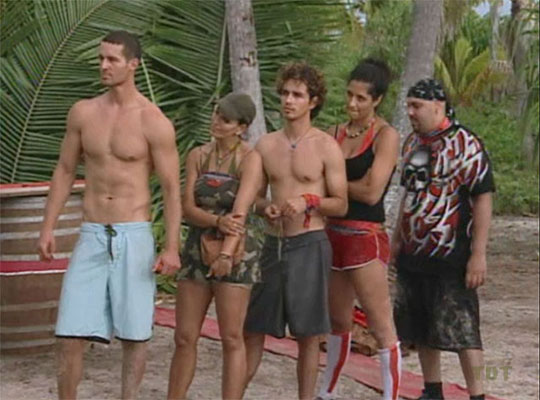

Survivor's initial status
quo, then its (soon-reversed) attempt at expanded diversity.
From two contestants out of 16 (S1: Borneo's Gervase
and Ramona, top left) to three full tribes (out of four) in S13:
Cook Islands.
But after Fiji (each season from China to Winners At War), Survivor producers were woefully slow to cast Black players. Just for perspective, there was a total of ZERO Black women cast to play in Vanuatu, Guatemala, Worlds Apart and Winners At War. There were no Black men cast to play in The Amazon, All-Stars, or Game Changers. In fact, the lone Black female to win Survivor (Vecepia from Marquesas) was never even asked about her interest or availability for Winners At War. To me, that was simply unforgivable. It was as if Producers thought “Give me one or two Black players, and we’re good,” with no regard for their competence or knowledge of how the game worked.
If you think that’s bad, my informal count (feel free to check me on this) revealed the numbers were even worse for Hispanics and Asians. There were 15 seasons with zero Asian women, 25 with zero Asian men, 17 with zero Hispanic women, and a staggering 29 with zero Hispanic men. For a while, Survivor was seen as a “White person’s show.” Looking at these casting totals, its hard to disagree with that accusation.
Between seasons 1-40, nine minorities won the game – Vecepia (Marquesas), Sandra (Pearl Islands), Yul (Cook Islands), Earl (Fiji), Sandra again (Heroes vs Villains), Natalie Anderson (San Juan Del Sur), Jeremy (Cambodia), Wendell (Ghost Island), and Chris Underwood (Edge Of Extinction). At the same time, there were a few perceptions that were consistently repeated — by fans and players alike. A few of them included “Black women always get voted out first,” “Black/Hispanic/Asian players will always stick together,” etc. Last season, Drea said “I was so proud because we had four Black contestants on. And it always happens at one point, where the Black contestants get booted out boom, boom, boom, and that’s exactly what this is right now. So yeah, I’m pissed.”
Was Drea right? Ehh, not really. I took a look back to see how many times Black players (men or women) were voted out consecutively. First of all, with so few seasons with multiple Black players, the odds were simply against it.
“Black players get voted out consecutively”
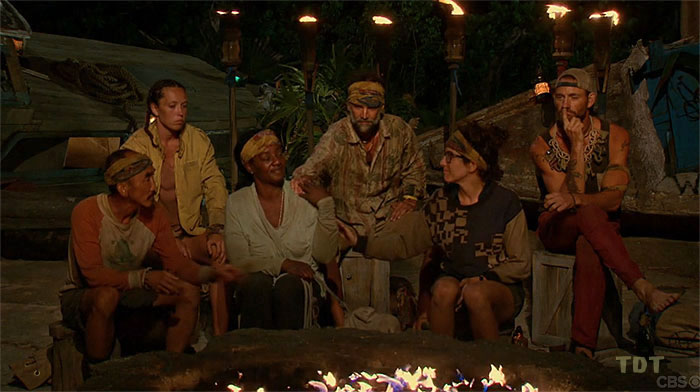
This has only happened three times:
- Cagayan – Brice, J’Tia & Cliff went out 3rd, 4th & 5th.
- Game Changers – Michaela & Cirie left 14th & 15th.
- Island Of The Idols – Jamal, Aaron & Missy left 9th, 10th & 11th.
In Cagayan, Brice & J’Tia were voted out from different tribes. Cliff was removed in a blindside on a swapped tribe. The move was led by Tony & Trish who’d been sitting at the bottom of an alliance led by Cliff. And none of them were voted out because of their race. When Cirie left in Game Changers, nobody actually voted against her. Everyone else had Immunity, an Idol, or an Advantage that protected them. Nobody wanted her out of the game.
So why did Drea have this impression? My best guess is because she had only watched a few recent seasons, maybe even binge watching them before leaving to play Survivor 42. And of course, she had no opportunity to watch season 41, and wouldn’t know how that season’s Black players performed. But if she watched Island of the Idols, that memory might be fresh in her mind. Somehow, Drea interpreted this as something that happened a lot more often.
Its also possible Drea saw these combinations of minorities leaving back-to-back in other seasons, and not necessarily consecutive Black players leaving.
Survivor 33: Millennials vs Gen X — Rachel & Mari left 1st & 2nd, then Lucy, CeCe, Figgy, & Michaela left 4th, 5th, 6th & 7th.
Survivor 37: David vs Goliath — Jeremy Crawford, Bi, Natalia, Natalie Cole, & Lyrsa left 3rd, 4th, 5th, 6th & 7th
Survivor 39: Island of the Idols — Kellee, Jamal, Aaron & Missy left 8th, 9th 10th & 11th.
After watching some of Drea’s questionable decisions, I suspect she didn’t exactly know how Survivor worked. She collected several advantages, but weakened every one of them by telling people she had them. When she was blindsided, she promptly spilled all kinds of information, including who she was leaning towards voting for as a juror. While her word vomiting wasn’t prohibited or unprecedented, it wasn’t exactly good form. Drea made instant targets out of Mike and Omar. And while she was quick to note how two consecutive Black players had been voted out, she didn’t mention she’d been plotting to remove Rocksroy multiple times before the merge. And if post-game accounts about her behavior on the Ponderosa are accurate, it seems Drea behaved one way while cameras were running, and a different way when she thought they were off.
In total, there are 17 seasons in which some combination of minority players were voted out consecutively. It happened in The Amazon, All-Stars, Cook Islands, Fiji, China, Gabon, Tocantins, Samoa, Nicaragua, South Pacific, San Juan Del Sur, Cambodia, Millennials vs Generation X, David Vs Goliath, and Edge of Extinction. But with 15 minorities in both Cook Islands and Fiji, consecutive boots were inevitable. Those seasons are anomalies. And of course, if we had 17 such seasons, it means we also had 23 seasons that did NOT see consecutive minority boots.
“Black women always get voted out first”
There is some debate as to whether or not those who have voiced this opinion were being literal, or exaggerating for dramatic effect. I find it interesting that the last two Black women who made this statement (Drea from Survivor 42, and Missy from I of I), did so as they were at a post-merge Tribal Council … with another Black woman sitting with her. Missy could shake hands with Lauren B (who eventually finished 4th), and Drea was speaking in concert with Maryanne (who won that season). I’m gonna address the literal interpretation here.
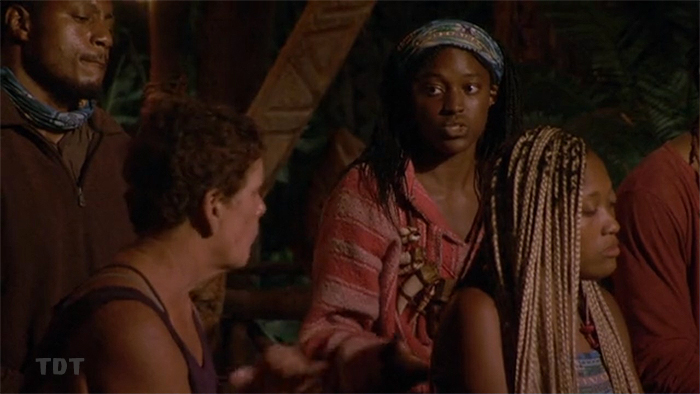
In 42 seasons, a Black woman has been voted out first overall a total of three times. And it has only happened to two women. Semhar was voted out first in South Pacific, and Francesca was voted out first in two seasons (Redemption Island and Caramoan). Three times in 42 seasons is a far cry from “always.”
Four times, a Black woman was the first voted out of her tribe, but not the first overall boot: Jolanda (Palau), Candace (Tocantins), Yasmin (Samoa), and Stacey (South Pacific). However, neither Jolanda nor Candace was the first woman to leave the game. In Palau, players chose tribes in a schoolyard pick. Wanda wasn’t chosen by anyone, and left without ever joining a tribe. And in Tocantins, players were asked to vote for someone in the first few minutes of the game. They believed they were voting someone out. Candace’s tribe voted for Sierra. I’m not sure who Sierra voted for, but none of the other votes were for Candace.
And four times, a Black woman was first voted out of a tribe right after a tribe swap: Sherea (China), CeCe (MvG), Michaela (MvG), and Natalie Cole (DvG).
This would make 11 Black women voted out “first” by any literal interpretation. The deepest run of any of them is Michaela in MvG, who was the seventh overall voted out. So for contrast, let’s take a look at how many Black women finished seventh or higher.
Nineteen Black women have finished 7th or higher: Vecepia (won Marquesas), Tijuana (7th in Pearl Islands), Cirie (4th in Panama), Sundra (4th in Cook Islands), Cassandra (2nd in Fiji), Cirie (3rd in Micronesia), Crystal (6th in Gabon), Taj (4th in Tocantins), Sabrina (2nd in One World), Tasha (6th in Cagayan), Tasha (2nd in Cambodia), Cydney (4th in Worlds Apart), Michaela (7th in Game Changers), Cirie (6th in Game Changers), Laurel (3rd in Ghost Island), Lauren B. (4th in Island of the Idols), Liana (7th in Survivor 41), Drea (7th in Survivor 42), and Maryanne (won Survivor 42).

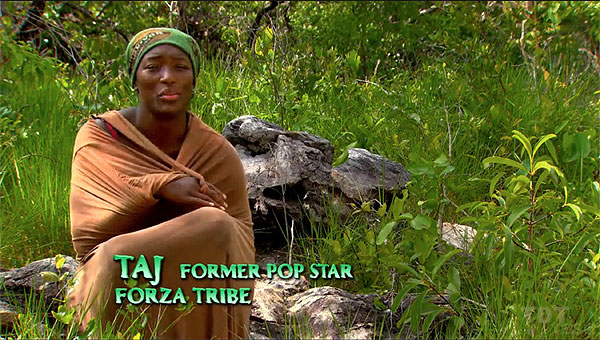
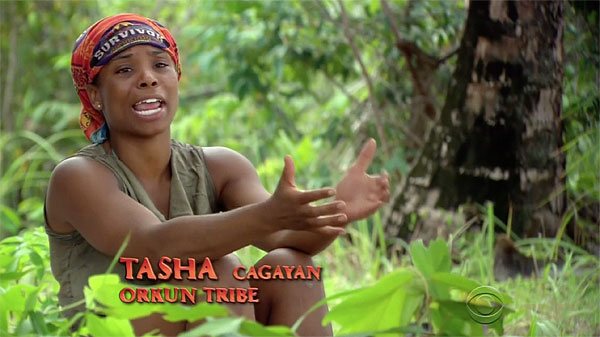

Top 7, baby!
19 finishing in the top 7 vs 11 voted out in the first 7 pretty much kills the “always voted out first” opinion, too.
For perspective, what are the numbers for Black men?
Three times a Black man was voted out first overall: Sekou (Cook Islands), Darnell (Worlds Apart), and Abraham (Survivor 41). But of course, Sekou was on an all-Black players tribe. It’s a stretch to count him here.
Two times, a Black man was voted out first from his tribe, but not first overall: Brice (Cagayan), and Jeremy Crawford (DvG). Both left 3rd overall, so we’ll compare that to the number of Black men who’ve finished 3rd or higher.
Ten times a Black man has finished 3rd or higher: Earl (won in Fiji), Dreamz (2nd in Fiji), Sash (3rd in Nicaragua), Phillip (2nd in Redemption Island), Albert (3rd in South Pacific), Gervase (3rd in Blood vs Water), Will (3rd in Worlds Apart), Jeremy (won in Cambodia), Wendell (won in Ghost Island), and Deshawn (2nd in Survivor 41). That’s 10 finishing in the top 3 vs 4 being one of the first 3 voted out.
“Black/Hispanic/Asian players will always stick together.”
This one is much more subjective, and difficult to measure. The strongest show of someone’s loyalty is their vote, so we could look at how many times Black players voted together. But then again, alliance partners often participate in split vote plans. Another way could be to look at how often Black players align together. But there are also examples of close partners who eventually turn on each other. So I’ll just cherry pick a few examples.
Season 1: Borneo. Gervase & Ramona were the only minorities in the cast. Ramona was voted out 4th overall, and this pair only attended two Tribal Councils together. They both voted to remove B.B., then Colleen. But of course, this was the first season. The majority of these players never even heard the word “alliance” until after the merge. They were all learning the game as they were playing it, and they were all catching up to eventual winner Rich.
Season 4: Marquesas. Sean & Vecepia spent the entire game on the same tribe (along with Boston Rob), and attended 10 Tribal Councils together. They voted together every time except once, and that one time turned out being the most important for eventual winner Vecepia. After a swap, Vecepia earned the trust of her swapped tribemates, while Sean and Boston Rob started fights with them. Vecepia helped vote out Boston Rob at the merge, while Sean voted for John. During the game, they never pledged loyalty to each other, and didn’t make a finals deal. But they were perceived as inseparable partners. Vecepia in fact, never officially joined any alliance.
Season 13: Cook Islands. The four tribes were initially divided by race, so when the Black tribe lost the first Immunity challenge, they had no choice but to vote out one of their own. But after a swap, Nate, Stephannie and Rebecca ended up on a tribe together. Nate never once voted with the women, and ended up voting for Stephannie twice and Rebecca once. Rebecca & Stephannie voted together to remove J.P., but then Rebecca helped vote Stephannie out. This trio was never united.
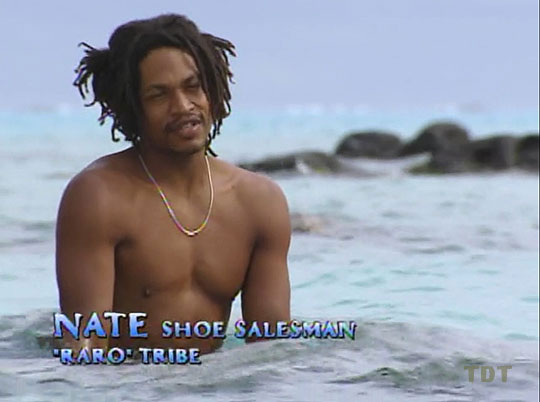
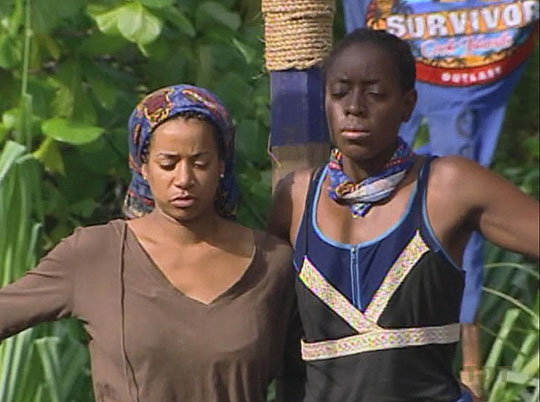
Nate, Rebecca, and
Stephannie ... never quite together
Season 14: Fiji. Dreamz attempted to form an alliance with all five Black players, but they got split up when tribes were chosen. Dreamz & Cassandra went to one tribe, while Earl, Erica and Anthony went to the other. Anthony & Erica voted together against Sylvia at their first Tribal Council, but Earl didn’t vote because he was on Exile Island. Erica was voted out. When Dreamz & Cassandra went to their first Tribal Council, they voted differently, even though they were both outsiders to the majority alliance. Earl & Anthony voted together against Rita once in a fairly obvious group decision. After a swap, Dreamz aligned with a group that booted Anthony. Post-merge, Cassandra & Dreamz voted together four times, but in their first TC, they voted differently. Earl largely united a group to remove Edgardo, but left Dreamz out of those plans. Earl was most loyal to Yau-Man for the majority of the game.
Season 28: Cagayan. Tasha & J’Tia voted together to remove David & Garrett, but Tasha regularly trashed J’Tia, both in confessional and around other players. Then Tasha helped vote J’Tia out.

Season 34: Game Changers. Upon reaching the merge, Cirie was quick to point out to Michaela that this was the first time two Black women made the merge. The two remained loyal, even though they didn’t always vote the same.
Season 36: Ghost Island. Wendell & Desiree started on the same tribe, but didn’t align or vote together. Wendell in fact, orchestrated the blindside on Desiree after the merge.
Season 39: Island Of The Idols. Aaron & Missy voted differently at their first two Tribal Councils, then became partners and stuck together until going out back-to-back after the merge. Lauren voted with the pair to remove Kellee at the merge, but the three of them voted differently at the next vote. Lauren never aligned with the pair.
Survivor 41. Shantel led a blindside on J.D. Then post-merge, Shantel, Liana, Danny & Deshawn pledged loyalty to each other, and vowed to go to the final 4 together. But the group fell apart when Danny & Deshawn felt Shantel betrayed them, so they helped Ricard blindside her. But Danny & Deshawn stayed loyal to each other as did Shantel & Liana.
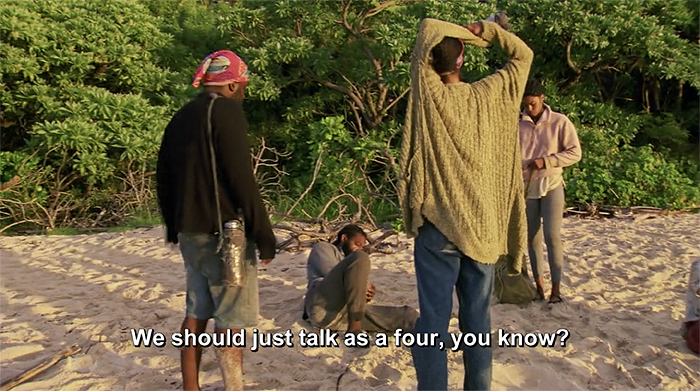
Survivor 42. Maryanne & Drea snapped at each other during one TC, but combined to vote out Lydia. But at the next vote, Drea’s majority left Maryanne out of the loop. Then when planning to vote against each other, both changed their minds when they saw two Black players on the Jury. While they were on the same page at this vote and the next, Maryanne and Drea were never aligned together.
My conclusion here is that far more often than not, Black players don’t form alliances based on race. This makes sense because in 38 of the first 40 seasons, there simply weren’t enough Black players to form any kind of majority. Most Black players approach Survivor as an individual game, and realize they’ll have to be open to aligning with anyone.
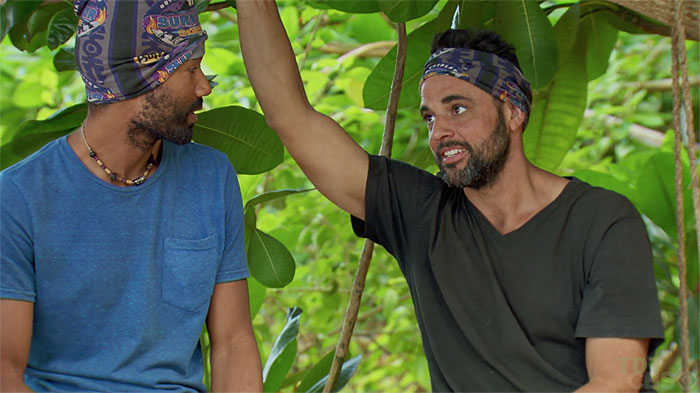
I haven’t taken as close a look at how Hispanic and Asian players have approached strategy, but I imagine the results are similar. I think the fear of an all-Black or all-minority alliance is as credible as the fear of an all-female or all-male alliance. More often than not, the proposed alliance destroys itself before it can become a threat to those most worried about it.
So there you have it. I'll cover a few more race-related subjects in part 2 of this column soon (specifically how Survivor’s casting department prepares the players), as well as a couple of other subjects. So please, offer some feedback in the comments.
 Damnbueno
got his nickname in 8th grade Spanish class when his friend
shouted out "You're pretty damn good at Spanish." The
teacher insisted he say it in Spanish, so the friend said
"Esto es damn bueno en Espanol." The nickname stuck. These
days, when he's not forgetting his 8th grade Spanish,
Damnbueno is indulging his obsession with all things
Survivor. Reach him in the comments section here at True
Dork Times.
Damnbueno
got his nickname in 8th grade Spanish class when his friend
shouted out "You're pretty damn good at Spanish." The
teacher insisted he say it in Spanish, so the friend said
"Esto es damn bueno en Espanol." The nickname stuck. These
days, when he's not forgetting his 8th grade Spanish,
Damnbueno is indulging his obsession with all things
Survivor. Reach him in the comments section here at True
Dork Times.
ADVERTISEMENT